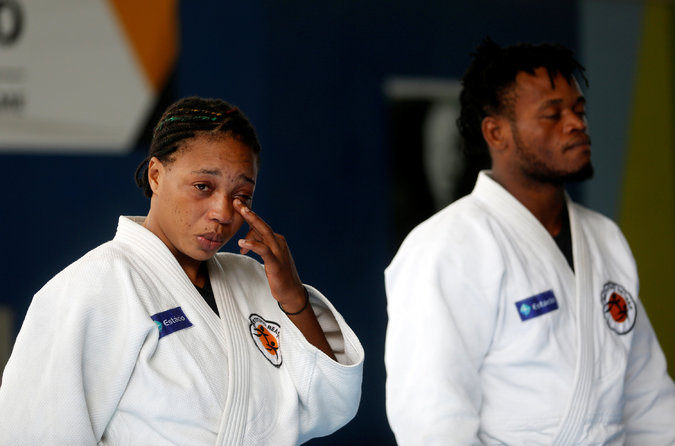 Yolande Mabika and Popole Misenga were members of the Congolese judo team at the 2013 world championships in in Rio in when they decided to escape.
Yolande Mabika and Popole Misenga were members of the Congolese judo team at the 2013 world championships in in Rio in when they decided to escape.
Misenga, 24, had seen his mother murdered when he was six years old before fleeing into the rainforest to avoid fighting in his hometown of Kisangani. Rescued a week later, he went on to learn judo at a home in Kinshasa, which is exactly how 28-year-old Mabika had taken up the sport when she, too, was evacuated to the same city.
But life on the DR Congo judo team offered little respite from hardships at home. Both athletes say their coaches would assault them and hold them in cage-like cells if they lost. Sometimes, there would be no food.
As the 2013 world championships closed, Mabika and Misenga made a break for a northern Rio neighbourhood and sought political asylum. They have remained ever since and are likely to be warmly received by their adopted home crowd when the Games begin.
« Their previous treatment seemed to be subhuman, » the duo’s new coach, Geraldo Bernardes, told the Guardian newspaper this year. « Here, everyone supports them. »
Misenga is now married to a Brazilian and has a one-year-old son. He will compete in the men’s 90 kg category with Mabika in the women’s 70 kg event.
« I want to win a medal and inspire refugees from all over the world, » Misenga told Rio’s organizers as he prepared for the Games.
« Afterwards, I want to stay in Rio. God has made this a magical place. »
CNN


